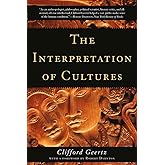
Enjoy fast, free delivery, exclusive deals, and award-winning movies & TV shows with Prime
Try Prime
and start saving today with fast, free delivery
Amazon Prime includes:
Fast, FREE Delivery is available to Prime members. To join, select "Try Amazon Prime and start saving today with Fast, FREE Delivery" below the Add to Cart button.
Amazon Prime members enjoy:- Cardmembers earn 5% Back at Amazon.com with a Prime Credit Card.
- Unlimited Free Two-Day Delivery
- Streaming of thousands of movies and TV shows with limited ads on Prime Video.
- A Kindle book to borrow for free each month - with no due dates
- Listen to over 2 million songs and hundreds of playlists
- Unlimited photo storage with anywhere access
Important: Your credit card will NOT be charged when you start your free trial or if you cancel during the trial period. If you're happy with Amazon Prime, do nothing. At the end of the free trial, your membership will automatically upgrade to a monthly membership.
Buy new:
-24% $21.29$21.29
Ships from: Amazon Sold by: Kuleli Books
Save with Used - Good
$1.84$1.84

Download the free Kindle app and start reading Kindle books instantly on your smartphone, tablet, or computer - no Kindle device required.
Read instantly on your browser with Kindle for Web.
Using your mobile phone camera - scan the code below and download the Kindle app.

OK
Works and Lives: The Anthropologist as Author 1st Edition
Purchase options and add-ons
The illusion that ethnography is a matter of sorting strange and irregular facts into familiar and orderly categories―this is magic, that is technology―has long since been exploded. What it is instead, however, is less clear. That it might be a kind of writing, putting things to paper, has now and then occurred to those engaged in producing it, consuming it, or both. But the examination of it as such has been impeded by several considerations, none of them very reasonable. One of these, especially weighty among the producers, has been simply that it is an unanthropological sort of thing to do. What a proper ethnographer ought properly to be doing is going out to places, coming back with information about how people live there, and making that information available to the professional community in practical form, not lounging about in libraries reflecting on literary questions. Excessive concern, which in practice usually means any concern at all, with how ethnographic texts are constructed seems like an unhealthy self-absorption―time wasting at best, hypochondriacal at worst. The advantage of shifting at least part of our attention from the fascinations of field work, which have held us so long in thrall, to those of writing is not only that this difficulty will become more clearly understood, but also that we shall learn to read with a more percipient eye. A hundred and fifteen years (if we date our profession, as conventionally, from Tylor) of asseverational prose and literary innocence is long enough.
- ISBN-100804717478
- ISBN-13978-0804717472
- Edition1st
- PublisherStanford University Press
- Publication dateJune 1, 1989
- LanguageEnglish
- Dimensions5.5 x 0.42 x 8.5 inches
- Print length157 pages
Frequently bought together

Customers who viewed this item also viewed
Editorial Reviews
Amazon.com Review
Review
From the Back Cover
Product details
- Publisher : Stanford University Press; 1st edition (June 1, 1989)
- Language : English
- Paperback : 157 pages
- ISBN-10 : 0804717478
- ISBN-13 : 978-0804717472
- Item Weight : 8.3 ounces
- Dimensions : 5.5 x 0.42 x 8.5 inches
- Best Sellers Rank: #1,357,591 in Books (See Top 100 in Books)
- #952 in Anthropology (Books)
- #5,552 in Cultural Anthropology (Books)
- #53,426 in Unknown
- Customer Reviews:
About the author

Discover more of the author’s books, see similar authors, read author blogs and more
Customer reviews
Customer Reviews, including Product Star Ratings help customers to learn more about the product and decide whether it is the right product for them.
To calculate the overall star rating and percentage breakdown by star, we don’t use a simple average. Instead, our system considers things like how recent a review is and if the reviewer bought the item on Amazon. It also analyzed reviews to verify trustworthiness.
Learn more how customers reviews work on Amazon-
Top reviews
Top reviews from the United States
There was a problem filtering reviews right now. Please try again later.
No one is better equipped to guide us through the intricacies of authorship than Clifford Geertz. Himself the distinguished author of an oeuvre and an accomplished writer with a rare command of words (where else would you find mention of an "asseverational prose", or a "cassowary of a book"?), he applies tools from literary theory as well as a sharp critical mind to the works of four towering figures of modern anthropology: Levi-Strauss, Evans-Pritchard, Malinowski, and Benedict. Borrowing from Roland Barthes, Michel Foucault, and Roman Jakobson, he is interested in the "text-building strategies", the display of the "theater of language", the exposing of the "author-function" in the text, the solutions to the "signature dilemma" and the intertextuality references to other genres and narratives that make these authors "founders of discursivity" as opposed to mere producers of texts. In other words, he is interested in how they write, what they do in writing anthropology books, and how we should read them.
Clifford Geertz locates the tensions of authorship in the distance between the two scenes of anthropologists' works and lives: "being there" and "being here". As he writes in introduction, "the ability of anthropologists to get us to take what they say seriously has less to do with either a factual look or an air of conceptual elegance than it has with their capacity to convince us that what they say is a result of their having actually penetrated (or, if you prefer, been penetrated by) another form of life, of having, one way or another, truly 'been there'."
But the world that anthropologists inhabit is a world of "lecterns, libraries, blackboards, and seminars", not to mention culture wars, political upheavals, and fast internet access. This is the world that produces anthropologists, that licenses them to do the kind of work they do, and with which the kind of work they do must find a place if it is to count as worth attention. Anthropologists live a divided existence: "a few years, now and again, scuffling about with cattle herders or yam gardeners, a lifetime lecturing to classes and arguing with colleagues."
Geertz's key insight is that the issue of negotiating the passage from "there" to "here", from what the anthropologist has been through "out there" to what he or she says "back here", is in essence literary. The literary character of anthropological texts should be recognized explicitly: as he notes, "this does not make us into novelists any more than constructing hypotheses or writing formulas make us, as some seem to think, into physicists". The central methodological issues involved in ethnographic description are as much linked to narratological issues (how the author manifests himself in the text, what style and tone he adopts, how is the reader involved) as they reflect the problematics of field work or the philosophy of knowledge.
The chapters devoted to four remarkable anthropologists should therefore be read as literary critique, without however the jargon and pedantry now attached to the discipline. They are models of wit, insight, and clarity. A common theme running through them (besides the national typologizing; Levi-Strauss as the Parisian theorist, Evans-Pritchard as the Oxbridge gentleman, Malinowski as the wild-eyed Pole, Benedict as the rebellious American) is the reference to literary works which form the background against which these anthropologists' works should be read.
Besides reflecting the French travel literature he was supposedly reacting against, Levi-Strauss is concerned to place himself and his Tristes Tropiques in the literary tradition established by Baudelaire, Mallarme, Rimbaud, and Proust, as well as to reenact Rousseau's Social Contract among the Nambikwara in deepest Amazon. E-P's avowed model is colonial literature written with White-Man's-Burden certainty, Malinowski inaugurates diary-like author-saturated introspections, and Benedict is a modern Swift, complete with a rehabilitation of the satirist's Modest Proposal ("We have done scant justice to the reasonableness of cannibalism").The fifth character depicted throughout this short book is, of course, Clifford Geertz himself, whose place among the pantheon of great anthropologists-authors is very well deserved.
Geertz offers ethnographers a conceptual framework that allows them freedom and control, a way to talk with confidence about their people group studied, a way to write new texts that might enlarge the sense of what everyday life is about. Geertz calls upon ethnographers not only to document their findings and data, but also to enliven their fieldwork by giving attention to their experiences.
The separation between the anthropological text and the reader, and also the one that separates the anthropologist and his people group sometimes becomes a rigid and artificially exaggerated boundary. Often this artificial boundary creates a false image in the reader's mind, making them see the people group as exotic and primitive. The only way to prevent this boundary from arising is for the anthropologist to incorporate into his writing the participatory aspect of his experiences with the people he has lived among.
Maintaining this ethnographic distance has resulted in the folklorization of the anthropological research about death. Geertz exemplifies this by saying that death is something universal, something that happens everywhere, among every kind of people, no matter which race, color or gender, whether adult or children; yet anthropologists have minimized this fact when describing death within their people group by focusing on the exotic, curious and sometimes violent rituals. This approach creates distance between the reader and the people because the reader's attention is brought to focus on the rituals. Instead of the reader identifying with the people's loss of a member of their family or society, he becomes caught up in the description of strong rituals practiced by a strange people group.
Geertz also analyzes the literary forms of several anthropologists such as Claude Levi-Strauss, Edward Evan Evans-Pritchard, Bronislaw Malinowski and Ruth Benedict. He says that: Levi-Strauss' relationship with the cultural reality is distant. Rather than painting a picture of the people's daily lives, he focuses his writings on painting a literary impression of himself; Evans-Pritchard shows his adventures both ways: as an actor and as an observer, he captures his experiences in a very descriptive animated style; Malinowski not only shows that he has been there but also that he has been a participant observer and has become one of the people he was studying; and Ruth Benedict shows more the reflexive aspect of having been there, answering the following anthropological questions: Where are they? Where am I? The way it is written is always like an aesopic commentary about their own society.
It's clear that Geertz is analyzing these modern anthropologists through his own conception of how an anthropologist should recount his experiences.
This book is appropriate for all level readers, and I think that every anthropologist should read and have it in mind as a consultant book while writing their reports.(Reviewed by Gabriela Huichacura, Universidad Nacional del Comahue, Gral Roca, Argentina)






